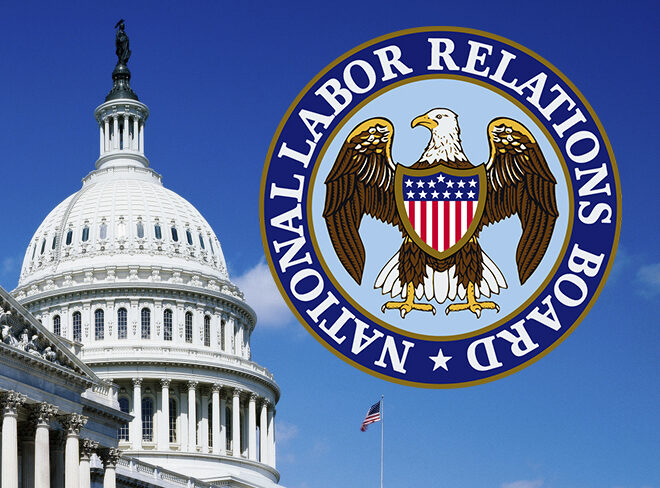Two national associations representing contractors impacted by the US Department of Labor’s Davis-Bacon wage rules regarding federal and federally assisted construction projects issued have issued statements expressing dissatisfaction with the decisions.
Not surprisingly, the perspective of the Associated Builders and Contractors (ABC) of America, which represents mostly non-union contractors, was the most hostile, considering that its members are most likely to feel pressure with enforcement of “prevailing wage” requirements within the regulations.
But the Associated General Contractors (AGC)of America, whose members are both unionized and non-union companies, also said the DoL’s “final rule” could have been better.
“Today’s announcement makes some improvements but critically misses an opportunity to improve the wage determination process and further burdens overregulated construction contractors building and upgrading the nation’s infrastructure,” the AGC said in its Aug. 8 statement.
“With an over 800-page rulemaking, where AGC is cited over 60 times, there is a lot to analyze to get a solid understanding of the full impact such a massive rulemaking will have on the federal construction market,” AGC CEO Stephen Sandherr said in a statement.
A preliminary analysis shows that while more work will be covered, this rulemaking critically missed an opportunity to improve the wage determination process. The 40-year awaited update reverts to the pre-1983 methodology for determining whether a wage rate is prevailing, also referred to as the “30 percent rule”, the statement says. “Just as proposed, this final rule appears to make it easier on the Department of Labor (DOL) itself to set prevailing wages with less of the data it already collects, or lack thereof.”
“AGC holds that the DOL’s almost exclusive reliance on voluntary surveys to produce and update wage determinations has created a compensation system for Davis-Bacon covered construction that poorly reflects the construction labor market in many parts of the country,” Sandherr said. “AGC recommended the DOL should instead focus on how to collect more accurate data, instead of being able to rely on less, or even at times inappropriate data, to determine wages that are truly prevailing.
“While we look forward to working with the DOL on implementation of the rule, we will continue to evaluate all our options on behalf of our members.”
ABC, for its part said, that the rule changes represent “drastic revisions”.
“This is yet another Biden administration handout to organized labor on the backs of taxpayers, small businesses and the free market,” said Ben Bruebeck, ABC’s vice-president of Regulatory, Labor and State Affairs.
“Unfortunately, the DOL’s final rule disregards the feedback of ABC contractors, construction industry stakeholders and thousands of small businesses urging the withdrawal of this unnecessary, costly and burdensome regulation. Instead, the DOL is moving forward with dramatic changes to prevailing wage regulations, reversing much-needed reforms that were established nearly 40 years ago, and unlawfully increasing the regulatory burden on small businesses, new industries and public works projects.”
“With this final rule, the DOL has abandoned any possibility of instituting commonsense reforms to Davis-Bacon regulations to ensure accurate and prompt prevailing wage determinations while providing the regulated community with the clarity needed to deliver high-quality projects at an affordable cost to taxpayers,” said Brubeck. “Instead, the rule makes it much more likely that the DOL will adopt union wage scales at the prevailing wage at a greater frequency than in current practice, which already adopts union wage scales at improbable rates considering just 11.7% of the construction industry is unionized. ABC will now be forced to take appropriate legal action to address the numerous illegal provisions of the final rule and protect our members, and ultimately hard-working taxpayers, from the harmful impacts of this regulation.
“The final rule comes in the midst of challenging economic conditions facing the construction industry, including high materials costs and a skilled labor shortage of more than half a million in 2023,” said Brubeck. “The onerous new requirements and artificial inflation of construction costs imposed by this rule will only exacerbate these headwinds and undermine taxpayer investments in infrastructure.”
ABC submitted nearly 70 pages of comments on the DOL’s proposed rule, and its more than 50 significant changes, urging the DOL to withdraw the proposal.
The 1931 Davis-Bacon Act and related regulations require contractors and subcontractors that perform work on federal and federally funded construction projects of $2,000 or more to pay a government-determined prevailing wage and benefit rate on an hourly basis to on-site construction workers. According to the DOL rulemaking, the Davis-Bacon Act and 71 active Related Acts collectively apply to an estimated $217 billion in federal and federally assisted construction spending per year—about 63% of all government construction put in place—and provide government-determined wage rates for an estimated 1.2 million U.S. construction workers.


